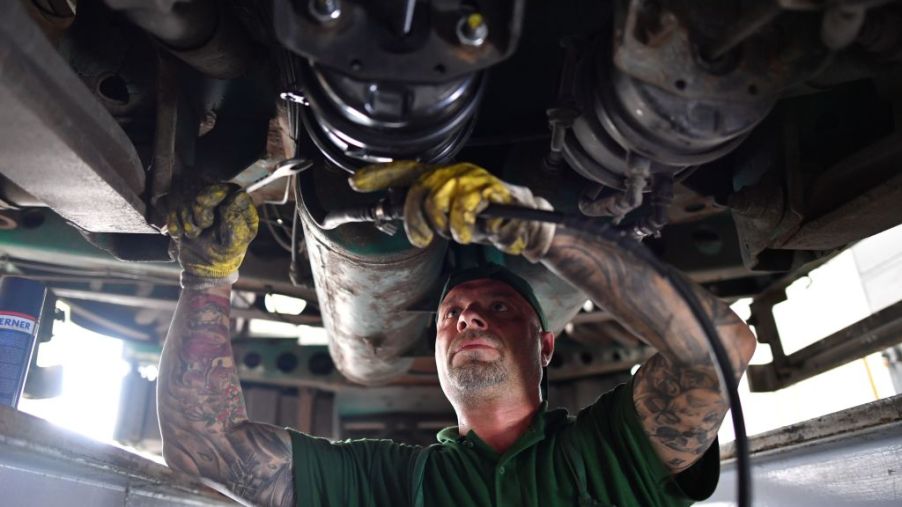
Why Buying a Diesel Truck Could Turn Into a Major Headache
Diesel fuel emerged as a viable alternative to gasoline but has had a somewhat tumultuous history in the automobile market. With today’s technology, truck design improvements, and fuel alternatives, it seems the diesel truck may be a dying breed. While the diesel engine does offer benefits, it can also cause you some major headaches. Here’s why the biggest headache with the diesel truck may also be the reason it disappears for good.
Are diesel trucks are a dying breed?
The average consumer isn’t drawn into the benefits of a diesel truck in today’s market. With powerful, fuel-efficient trucks becoming the norm, the benefits of diesel seem to be withering away. According to Hackaday, diesel became the go-to-option for trucks because of its potential to improve torque and fuel economy; two things very important to any truck buyer.
Diesel engines offer improved fuel economy of up to 15% over gasoline engines, but that doesn’t make it better for the environment. In fact, diesel engines produce more carbon dioxide emissions than gasoline, as well as create higher levels of oxides of nitrogen.
When consumers began to realize this, the image of the diesel engine was forever tainted. And with better alternatives being created by some of the biggest automakers in the world, the popularity of the diesel engine began to die down.
The difficulty with maintaining a diesel truck
Because diesel engines and trucks are becoming a less popular choice, finding someone to work on your truck could become more difficult. But supply and demand isn’t the only reason finding someone to work on your diesel could prove tiresome. It takes a special kind of mechanic to work on diesel engines and vehicles, so maintaining and servicing a diesel truck can be far more challenging than with a gasoline-powered truck.
According to Chron, any mechanic can legally work on a diesel vehicle, but only mechanics with specialized training in working on diesel engines are typically hired by shops, dealerships, etc.
This is because diesel vehicles work completely differently than gasoline-powered vehicles. And as economics would dictate, these few-and-far-between diesel mechanics will typically cost you more. In fact, the average annual salary of a diesel mechanic in 2018 was $47,350, according to the Bureau of Labor Statistics. The standard automotive mechanic, however, received an average annual salary of just over $40,000.
But while an estimated 770,100 people reported income as a mechanic, only 285,300 reported being a diesel mechanic. This is a telling statistic and it means that as time goes on, finding somebody to work on your diesel engine will only get harder. Many people may find it simply isn’t worth the trouble.
Other drawbacks
Finding someone to work on your truck may be the biggest headache of owning a diesel, but that’s not the only drawback to owning a diesel truck. Even with updates and improvements to diesel technology, the noxious fumes produced by diesel engines are bad for the environment and also your health.
According to Truck News, “inhaling diesel fumes over an extended period of time can still lead to acute or short-term health effects.” Direct exposure to diesel fuel or fumes can lead to side effects like dizziness and/or nausea, headaches, and eye/skin irritation.
But in the long-term, exposure to diesel can cause an increased risk of heart attack, respiratory problems, damage to the kidneys, brain and immune system issues, and even cancer.
Because of the design of the diesel engine, these trucks will typically be more expensive to purchase than gas-powered trucks. According to U.S. News, you won’t make up these costs at the pump either. That’s because diesel fuel prices are higher than regular gas, on average. It seems that the diesel truck won’t save you money in the beginning or in the long-run.


